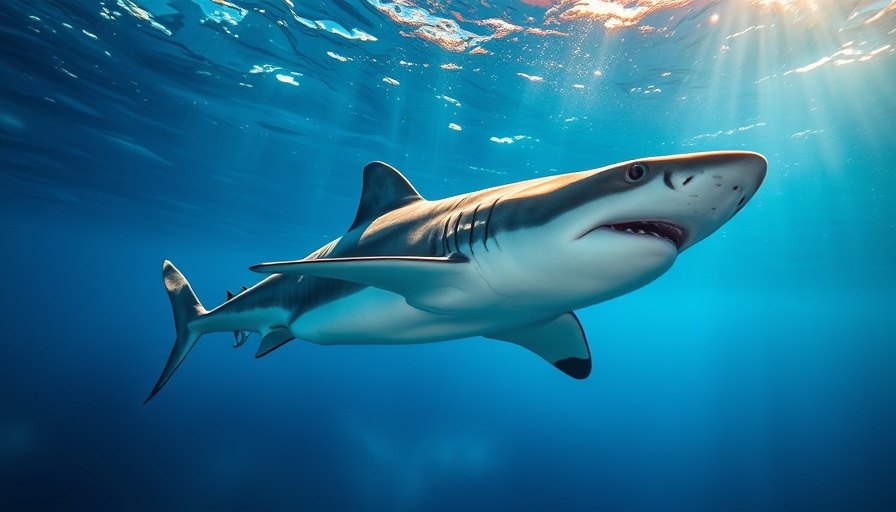
New Champion for Aliwal Shoal Hope Spot: A Green Future
[DURBAN, SOUTH AFRICA] – Nestled just 50 km south of Durban, the Aliwal Shoal stands as a beacon for marine biodiversity and eco-tourism. As one of South Africa's premier dive sites and a Marine Protected Area (MPA), this rocky reef is more than a stunning underwater landscape; it is the focus of renewed conservation efforts that aim to protect its unique marine ecosystem.
In a significant move highlighting the value of community-driven ocean custodianship, the Aliwal Shoal has been officially re-designated as a Hope Spot by Mission Blue, an organization founded by the renowned oceanographer Dr. Sylvia Earle. This re-launch, set for February 2025, builds on the site’s original designation in 2014, emphasizing the crucial role Hope Spots play in safeguarding ocean health in an era marked by pollution and climate change.
Why Hope Spots Matter in the Age of Climate Change
Mission Blue designates Hope Spots as vital marine areas recognized for their ecological importance. These sites serve not only as a call to action for conservation but also as strategic points for restoring marine biodiversity amidst growing environmental threats. Dr. Earle underscores a critical goal: protecting 30% of South Africa's waters to foster sustainable fisheries, protect marine species, and enhance the resilience of coastal communities. This aligns with the global push for sustainable practices and energy transitions, as highlighted in recent discussions surrounding the energy crisis—where the urgent need for renewable energy sources is evident.
The Role of Local Champions in Conservation Efforts
At the forefront of this renewed initiative is Russel Symcox, a local conservationist who has been deeply involved in promoting ocean protection for over a decade alongside his wife, Olivia. Their commitment signifies the power of grassroots movements, which are essential for advocating sustainable practices within communities. By leveraging local knowledge and building partnerships, they aspire to enhance sustainable tourism, which can mitigate the adverse effects of climate change while positively impacting the economy.
Symcox's vision includes not only maintaining the ecological integrity of the Hope Spot but also utilizing its status to foster economic opportunities through eco-tourism, thus aligning economic incentives with environmental health.
Connecting the Dots: Eco-tourism and Energy Transition
The intersection between eco-tourism and sustainable energy solutions cannot be overlooked. As Adams and Blenkinship (2021) support in their discussions on energy efficiency, integrating renewable energy initiatives can serve as a case study for other coastal regions. The success of the Hope Spot could stimulate job creation in the green economy, particularly as South Africa increasingly embraces renewable energy solutions such as solar and wind power. This would not only create jobs but also foster greater energy security in areas historically reliant on fossil fuels.
Challenges Ahead: Ensuring Sustainable Development
Despite the positive strides, challenges abound. Coastal regions like KwaZulu-Natal face ongoing threats from climate change, including unpredictability in weather patterns, rising sea levels, and the exploitation of marine resources. Balancing conservation efforts with tourist expectations requires careful planning and investment in green infrastructure, which may involve energy-efficient buildings or renewable energy installations to capitalize on the area's natural resources.
The region's move towards a Just Energy Transition can also underline the importance of integrating sustainable practices into daily operations—whether that means using electric vehicles in tourist transportation or implementing waste-to-energy projects designed to minimize environmental footprints.
A Collective Vision for a Sustainable Future
Celebrating the announcement of the Aliwal Shoal as a renewed Hope Spot serves as a reminder that the future of our oceans and coastal communities relies heavily on collective action. As Symcox aptly notes, by fostering a united vision, both the local community and broader stakeholders can create sustainable solutions that benefit the environment, the economy, and society at large.
In summary, the significance of the Aliwal Shoal Hope Spot extends beyond scuba diving; it embodies a crucial part of South Africa's commitment to marine conservation and sustainability. As efforts ramp up to protect this valuable asset, the intersection of conservation, eco-tourism, and renewable energy presents a path forward. The conversations around energy policy and environmental impact are woven into the very fabric of what places like Aliwal Shoal embody, encouraging us to question our role in this intricate ecosystem.
To further explore how local actions can lead to significant environmental impacts, consider advocating for sustainable practices in your community. Every step towards sustainability counts in the face of climate change.
 Add Row
Add Row  Add
Add 




Write A Comment